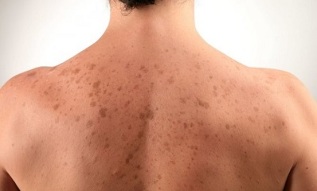With the modern development of medicine and a lot of research, scientists are not able to fully determine the real causes of the development of scaly lichens. Psoriasis is a disorder of the skin and tissues surrounding the joints. The disease is characterized by a non-infectious course with the appearance of fusion-prone papules and red spots. These formations are dry, scaly, rise above the surface of the skin, and represent a chronic, localized process. Microscopy identifies a significant number of keratinocytes, cells of the immune system (T lymphocytes and macrophages), with abundant growth of the vascular network.
Psoriasis and its causes are being actively investigated with this development in medicine, but no one is determining the ultimate cause of its onset.
Scientists identify several major causes of pathology:
- Genetics- the hereditary theory of the appearance of psoriasis is based on the fact that if ancestors or close relatives have this pathology, the risk of its occurrence in future generations is 25%, if oneparent patient. With the development of the disease in both parents, the risk of having offspring increases to 70%. It is a possible possibility when a healthy child is born from sick parents, but after a while the above factors cause the disease to develop in it.
- Immune Defect- Scientists have examined the histological material of patients with psoriasis to reveal an excessive accumulation of diseased immune cells in the layers of the epidermis. However, specific antibodies were found and in the surface layers of the epidermis - Munro microabsorbances (intercellular fluid, accumulation of leukocytes, macrophages). A general blood test shows an increase in the number of leukocytes (T-helpers), all about the autoimmune nature of the disease.
- Viral lesion- in this case, means infection with retroviruses. This strain introduces its own tRNA chain into the host cell and replaces its genetic code with a viral one. Which manifests itself in the overproduction and proliferation of immature and undifferentiated cells in the dermis.
It is an interesting fact that antipsoriatic treatment according to autoimmune theory aims to reduce the number of immune cells, including T-helpers. In people living with HIV / AIDS, the number of these cells in the presence of psoriasis decreases to the limit and the risk of developing psoriasis increases. Further investigation of this fact may completely refute the autoimmune theory of the development of psoriasis.
Factors in the development of psoriasis

What causes psoriasis? There are several provoking factors that negatively affect the body:
- Stress- this factor is the trigger for psoriatic outbreaks and the final relationship that reduces the rash. This factor is one of the main ones, as the development of psoriasis in 50% of cases is precisely due to extreme fatigue, psychological trauma and nervous strain. With the onset of remission of psoriasis, any mental shock can trigger relapse;
- Infections- a group of diseases that have caused the primary foci of psoriasis rash. Such diseases include: all infectious diseases of the upper respiratory tract, bacterial and fungal infections affecting the skin, mononucleosis. The presence of increased amounts of pathogenic microflora (beta-hemolytic streptococcus and Staphylococcus aureus) has been determined in patients with psoriasis. Candidiasis is a fungal infectious process in which psoriasis most commonly develops;
- External influences- A fairly large number of patients associate the appearance of psoriasis with external physical factors. The most common are: mechanical trauma to the skin, burns, hypothermia, and frostbite;
- Endocrinopathies- this group of diseases is accompanied by impaired functioning of the body as a whole. This factor is most often found in the female sex, due to frequent changes in hormonal levels in connection with growth, pregnancy, menstrual cycle, menopause. In patients with diabetes mellitus, metabolism is significantly disrupted, while a constant excess of glucose negatively affects human tissues and organs, provoking the development of other diseases;
- Toxins- another cause of psoriasis in the body. Its appearance is associated with food poisoning, work in factories or factories, abuse of certain products (citrus fruits, coffee, chocolate). Alcohol and smoking provoke many diseases with their toxic effects, including psoriasis;
- Pathogenetic effects include takingmedications.Some patients have been shown to develop psoriasis while taking the following medicines: NSAIDs, beta-blockers, fortified medicines (vitamins C, B, D), cytostatics, antibiotics (cephalosporins).
Prevent psoriasis
There are several factors that contribute to the development of psoriasis. The basic theory has not yet been defined, and prevention measures need to be comprehensive, comprehensively targeted. Patients need to rethink their lifestyles. If necessary, make your home more environmentally friendly.
We recommend that you avoid stressful situations. Possible use of antidepressants and sedatives. The diet should include more fiber, non-allergenic fruits and vegetables, meat, fish. When treating concomitant pathologies, be sure to stop bad habits and consult a physician for replacement therapy. Attend special sanatoriums.























